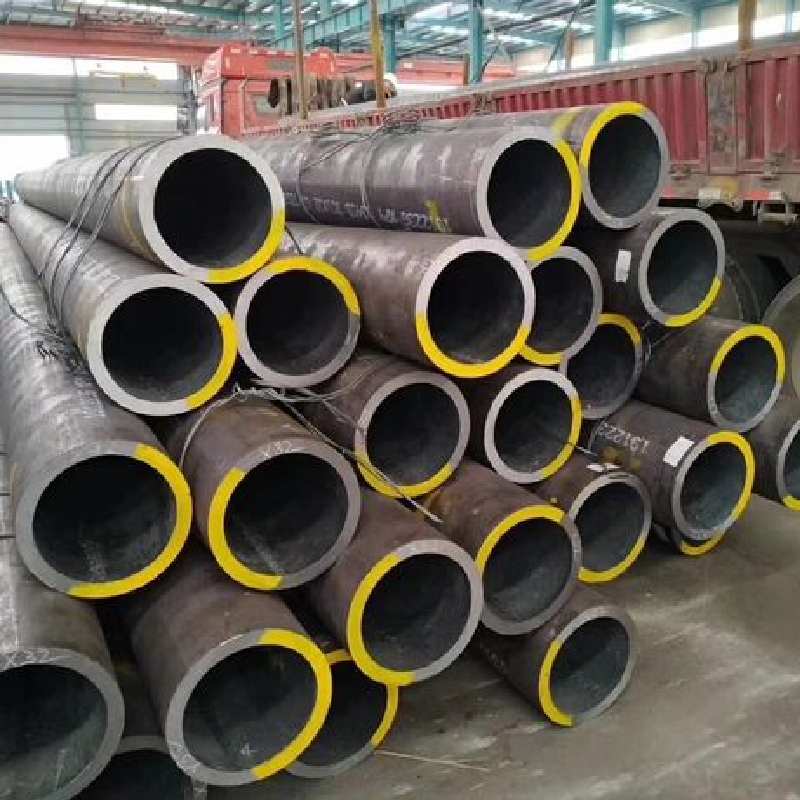-
Cangzhou Yulong Steel Co., Ltd.
-
Phone:
+86 13303177267 -
Email:
admin@ylsteelfittings.com
- English
- Arabic
- Italian
- Spanish
- Portuguese
- German
- kazakh
- Persian
- Greek
- French
- Russian
- Polish
- Thai
- Indonesian
- Vietnamese
- Zulu
- Korean
- Uzbek
- Hindi
- Serbian
- Malay
- Ukrainian
- Gujarati
- Haitian Creole
- hausa
- hawaiian
- Hebrew
- Miao
- Hungarian
- Icelandic
- igbo
- irish
- Japanese
- Javanese
- Kannada
- Khmer
- Rwandese
- Afrikaans
- Albanian
- Amharic
- Armenian
- Azerbaijani
- Basque
- Belarusian
- Bengali
- Bosnian
- Bulgarian
- Catalan
- Cebuano
- China
- China (Taiwan)
- Corsican
- Croatian
- Czech
- Danish
- Esperanto
- Estonian
- Finnish
- Frisian
- Galician
- Georgian
- Kurdish
- Kyrgyz
- Lao
- Latin
- Latvian
- Lithuanian
- Luxembourgish
- Macedonian
- Malgashi
- Malayalam
- Maltese
- Maori
- Marathi
- Mongolian
- Myanmar
- Nepali
- Norwegian
- Norwegian
- Occitan
- Pashto
- Dutch
- Punjabi
- Romanian
- Samoan
- Scottish Gaelic
- Sesotho
- Shona
- Sindhi
- Sinhala
- Slovak
- Slovenian
- Somali
- Sundanese
- Swahili
- Swedish
- Tagalog
- Tajik
- Tamil
- Tatar
- Telugu
- Turkish
- Turkmen
- Urdu
- Uighur
- Welsh
- Bantu
- Yiddish
- Yoruba

Jul . 25, 2024 04:30 Back to list
High-Quality DIN Flanges From Reliable Manufacturing Facility for Diverse Industrial Applications
DIN Flange Factory Understanding the Production of Standardized Flanged Components
In the realm of engineering and manufacturing, DIN flanges play a pivotal role in ensuring secure and reliable connections in piping systems. DIN, which stands for Deutsches Institut für Normung (German Institute for Standardization), has established various standards that govern the dimensions and characteristics of flanges, thereby promoting uniformity and efficiency in manufacturing processes globally. This article explores the significance of DIN flanges, the operations of a typical DIN flange factory, and the advantages of utilizing standardized flanged components.
The Importance of DIN Flanges
DIN flanges are widely used across various industries, including oil and gas, water treatment, chemical processing, and construction. By adhering to standardized dimensions, DIN flanges facilitate compatibility between different components, making it easier to assemble complex piping systems. These flanges are available in various types—such as weld neck, slip-on, blind, and threaded—allowing engineers to select the most suitable option based on the specific operational requirements.
The standardized design of DIN flanges ensures the creation of a tight seal between pipes and other fittings, preventing leaks and ensuring the stability of the entire system. Additionally, the uniformity in sizes and shapes simplifies the sourcing of materials, reduces production costs, and minimizes production time, making them a preferred choice for manufacturers and contractors alike.
Operations of a DIN Flange Factory
A typical DIN flange factory is equipped with advanced machinery and technology to meet production demands while adhering to strict quality standards. The manufacturing process begins with the selection of high-quality raw materials, usually carbon steel, stainless steel, or alloy steel, depending on the application requirements. The chosen material is then shaped into blanks using cutting-edge machining tools.
din flange factory

Following the initial shaping, various processes such as forging, machining, and heat treatment are employed to achieve the desired dimensions and mechanical properties. Precision machining is particularly crucial in this stage, as it ensures that the flanges meet the exact specifications outlined in DIN standards. After machining, flanges undergo rigorous quality control checks, including dimensional inspections and non-destructive testing, to ensure they meet the required safety and performance standards.
Once the quality checks are completed, the flanges are typically coated to enhance their corrosion resistance and overall durability. This is particularly important for flanges used in harsh environments, where exposure to moisture and chemicals can lead to rapid deterioration.
Advantages of Using DIN Flanges
One of the most significant advantages of utilizing DIN flanges is their standardized nature. This consistency allows for seamless integration of components from different manufacturers, which is crucial in industries where downtime can lead to significant financial losses. Furthermore, the availability of DIN flanges in various sizes and designs means that engineers have a wide variety of options to choose from, enabling them to customize their piping systems according to specific needs.
Additionally, thanks to the stringent quality assurance processes in place at DIN flange factories, users can have confidence in the reliability and performance of the products. This reliability translates into reduced maintenance costs over time and enhances operational efficiency.
In summation, DIN flanges are an integral part of modern industrial applications, providing a reliable and efficient means of connecting piping systems. The meticulous operations within a DIN flange factory, alongside the benefits of standardized components, ensure that industries can operate smoothly and effectively. As the demand for reliable piping solutions continues to grow, DIN flanges will undoubtedly remain at the forefront of engineering innovations, supporting advancements across various sectors globally.
Latest news
-
ANSI 150P SS304 SO FLANGE
NewsFeb.14,2025
-
ASTM A333GR6 STEEL PIPE
NewsJan.20,2025
-
ANSI B16.5 WELDING NECK FLANGE
NewsJan.15,2026
-
ANSI B16.5 SLIP-ON FLANGE
NewsApr.19,2024
-
SABS 1123 FLANGE
NewsJan.15,2025
-
DIN86044 PLATE FLANGE
NewsApr.19,2024
-
DIN2527 BLIND FLANGE
NewsApr.12,2024
-
JIS B2311 Butt-Welding Fittings LR/SR 45°/90° /180°Seamless/Weld
NewsApr.23,2024











